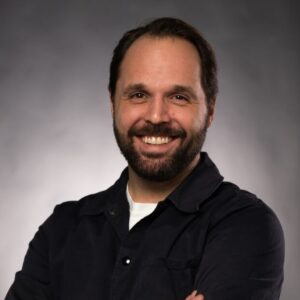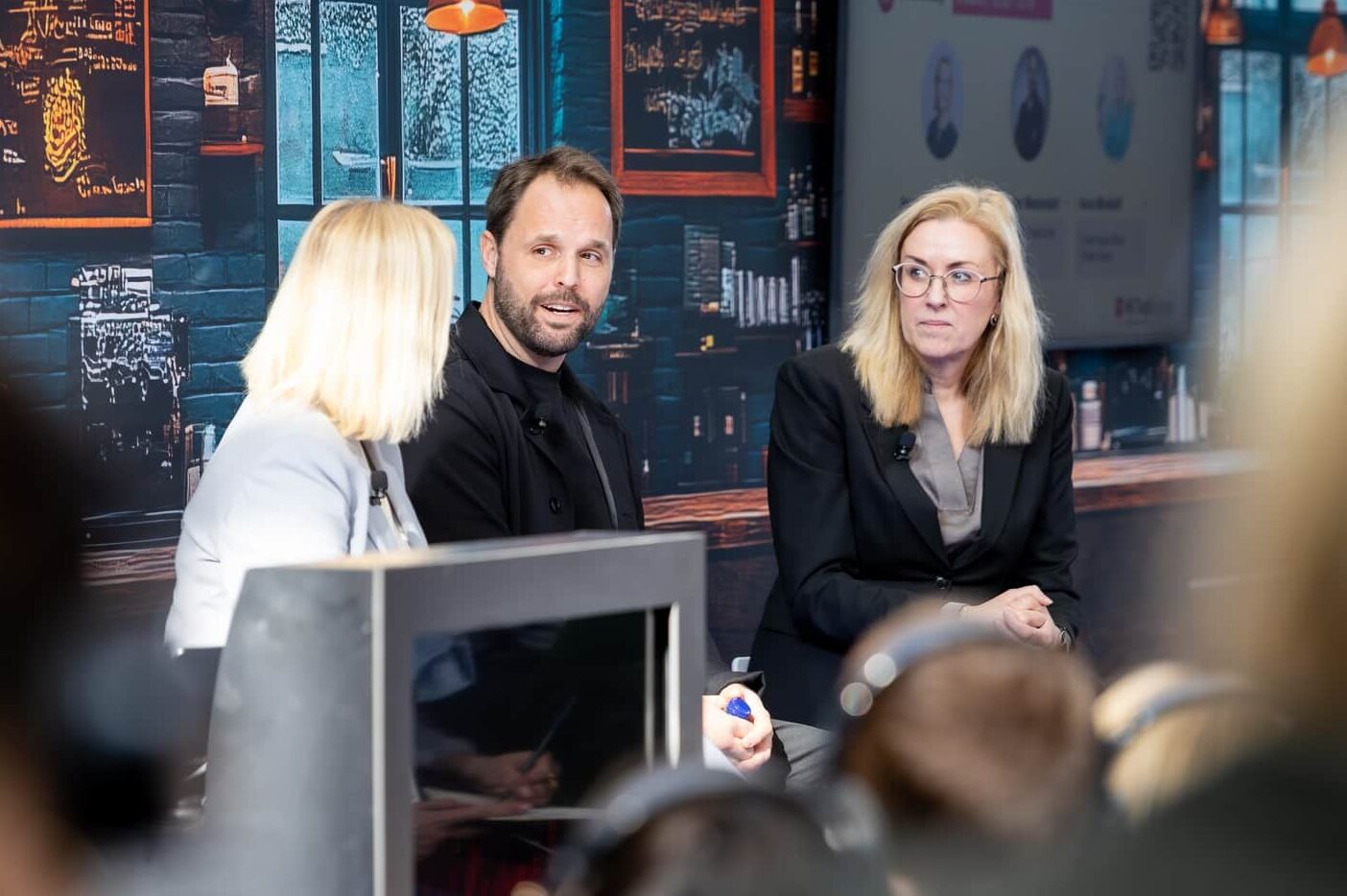The business ecosystem of 2030 is predicted to be shaped by three key forces: digital transformation, talent shortages and an increased focus on sustainability. Many analysts and researchers believe HR leaders will be at the heart of the action.
According to Schneider Electric’s global survey of about 400 organizations, over half of the respondents identified talent acquisition as a major challenge. However, digitalization offers a promising solution—more than 70% of respondents believe that digital tools can help address the talent gap, providing power beyond efficiency and productivity.
The research also highlights the growing impact of sustainability goals on the workforce. Nearly half of respondents acknowledge that meeting both environmental (45%) and social (47%) sustainability targets will require significant expansions and adaptations of existing job roles.
In a recent HR Tech Europe session, senior executives from Fiskars Group and Spotify joined analyst Anna Carlsson to explore how organizations are preparing for these shifts through digital transformation.
The HR function is uniquely positioned to lead this evolution by leveraging data-driven insights, advanced technology and AI to reimagine work environments. By blending digital resources with human-centered practices, experts say that HR leaders can develop ecosystems in which individuals and teams feel empowered to grow, develop and be valued.
Carlsson, founder of analyst firm HR Digi, emphasized thinking about the future in terms of broader digitalization, not just AI, and addressing the emerging skills gap.
“All companies will be kind of digital in the future,” she noted. Regarding talent, lower birth rates are creating a “gap between what we have and what we need.”
Carlsson posed a fundamental question: “Are we going to be HR as it is in the future?” This triggered thoughtful responses from the other panelists about the evolving nature of HR work.
Spotify’s approach: Innovation and flexibility
With about 7,000 employees whose average age is 35, Spotify has a notably young workforce—they just recently had their first retiree and “didn’t have a process for that,” according to Alexander Westerdahl, HR lead for product and technology. Despite the company’s relative youth—just 20 years old—many employees have long tenure, he says.

The digital music company’s employees are “impatient to learn and grow,” Westerdahl said, and that has shaped its approach to workplace flexibility. The organization is “more digital than ever,” he added, allowing employees to work wherever they want. What provides cohesion is that they think similarly about solving problems.
Regarding the future of HR professionals, Westerdahl expects more to become generalists, though “merging breadth with depth will be tricky.” He said anticipates the role will shift to become less focused on policy and more focused on guidelines that allow people to “be grownups and make decisions with an entrepreneurial mindset.”
Key advice from Spotify’s experience
- Focus on retention by helping employees find their next role within the organization.
- Recognize that today’s workforce has more individualistic expectations than previous generations
- Create employee offers that can adapt to individual needs.
- Be clear about expectations and tradeoffs with work arrangements.
- Leaders must be able to adapt quickly and must expect some chaos.
- Use AI to free up time for relationship-building.
Westerdahl also challenged the trend of “bringing one’s full self to the office,” saying this type of environment promotes individualism over collaboration. “It’s a bad idea when everyone needs to adapt to you, not meet in the middle,” he said. “The full self should be left at home when going to work.”
When implementing AI, Westerdahl advises organizations not to reinvent their entire business. Instead, identify a good place to start and keep options open because the AI “space will change widely in 12 months.”
Fiskars Group: Balancing tradition, innovation

Anna Mindelöf, chief people officer at Fiskars Group, presented a different perspective. Founded in 1649 and headquartered in Finland, Fiskars is one of the oldest Western companies and a leading global lifestyle brand for gardening, cooking and craft products.
With about 7,000 employees across various demographics and sites, the company faces the challenge of balancing its heritage with modern work practices. While many consumers know Fiskars for scissors and gardening tools, the group also includes brands such as Royal Copenhagen’s iconic blue and white porcelain and world-famous Waterford crystal.
Providing personalization for many types of workers, for example, is vital, Mindelöf noted. At Fiskars, technology is primarily driven by IT, with tech seen as a support function by most employees. Adopting new technology tools requires a “curiosity mindset,” she said. She advises leaders to model innovation by “staying curious and on our toes and learning from the guys who are in the front of AI adoption.”
Workforce challenges at Fiskars are distinct from those at Spotify and many other modern-day organizations, Mindelöf said. The company needs to attract talent for luxury brands along with specialized craftspeople, such as glass blowers in Finland and Slovenia—where employees often remain in their roles for 30-50 years.
Key advice from Fiskars’ experience
- Personalization needs vary by workforce segment.
- Leaders must model technology adoption.
- Work arrangements depend on context—choices on personalized worksite flexibility aren’t always equal.
- HR leaders should act as coaches rather than “hiding behind processes.”
- Sustainability should include work-life balance—”wellbeing must be integrated.”
Looking to the future, Mindelöf expects HR work to become more “project level,” requiring both strategy and depth. She said she anticipates more task-based and data-based approaches tailored to each organization’s specific challenges.
Digital transformation for the future: Mindset shift plus agility
Ultimately, the conversation—with representatives of a 20-year-old company and one that celebrated its 375th anniversary in 2024—highlighted that there is no one-size-fits-all solution. However, both executives agreed that successfully navigating the future workplace requires a fundamental shift in approach.
As organizations prepare for 2030, HR departments must embrace their role as pioneers in workplace transformation, panelists agreed. By leveraging technology while maintaining a human-centered approach, HR professionals can create environments where both businesses and individuals thrive in an increasingly complex landscape.
“It’s our mindset that needs to change,” said Mindelöf, emphasizing “agility—being there and understanding and being brave and trying it out.”
Want more insight from global people leaders? Registration for HR Tech in Las Vegas is now open. Register here.
Credit: Source link











